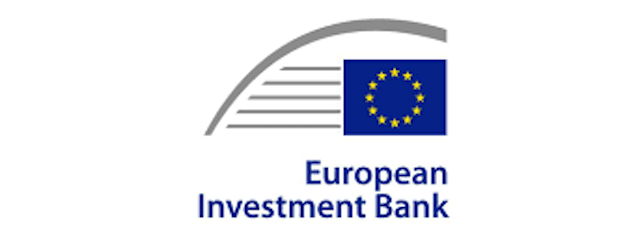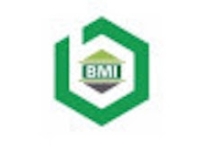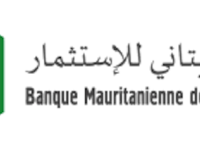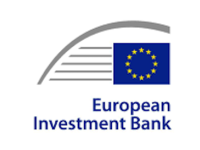Entertainment
EIB TO RPOVIDE €20 M IN FINCNACING & A PORFROLGIO GUARANTEE TO BANQUE MAURITANIE
TO HELP MOBILISE TWICE VALUE OF THE LOAN

European Investment Bank EIB Logo (Source: European Investment Bank EIB)
USPA NEWS -
European Investment Bank (EIB) to provide €20 million in financing and a portfolio guarantee to Banque Mauritanienne de l'Investissement The €20 million EIB loan to BMI will mobilise up to €40 million in financing for Mauritanian businesses, amounting to twice the value of the EIB loan. This is the first time the EIB (https://www.EIB.org) and the Mauritanian financial sector have worked together since 2006, and is among the first operations under the new 2023-2027 agreement between the European Commission and the EIB for financing the private sector in Africa, the Caribbean and the Pacific.
The impact of this partnership will include the following:
• Around 400 small businesses and mid-caps will receive support in the form of financing from Banque Mauritanienne de l'Investissement (BMI), with the support of the EIB and the European Union.
• The €20 million EIB loan to BMI will mobilise up to €40 million in financing for Mauritanian businesses, amounting to twice the value of the EIB loan. At least 30% of the EIB financing will go primarily to women and at least 30% to young people.
• The portfolio guarantee agreement linked to the EIB loan will focus specifically on startups
The impact of this partnership will include the following:
• Around 400 small businesses and mid-caps will receive support in the form of financing from Banque Mauritanienne de l'Investissement (BMI), with the support of the EIB and the European Union.
• The €20 million EIB loan to BMI will mobilise up to €40 million in financing for Mauritanian businesses, amounting to twice the value of the EIB loan. At least 30% of the EIB financing will go primarily to women and at least 30% to young people.
• The portfolio guarantee agreement linked to the EIB loan will focus specifically on startups
Trouvant son fondement dans la Déclaration des droits de l’homme et du citoyen de 1789, le droit à l’information est tout autant le droit d’être informé que le droit d’informer. L’accès à une information libre, indépendante et à laquelle on peut se fier est bien l’une des conditions de la démocratie : elle permet à chacun d’exercer pleinement et en toute lucidité sa citoyenneté dans un cadre pluraliste. Nous avons le devoir collectif de permettre aux citoyens d’avoir accès à cette information et de préserver ce droit.
Or, des innovations technologiques sans précédent conjuguées à des usages en pleine évolution ont bouleversé les conditions de production, de diffusion et de réception de l’information. Fake news, deepfake, intelligence artificielle, ingérences, mutation des modes de consommation par écran interposé, distanciation du rapport à la vérité, accélération des moyens de diffusion, nouvelles contraintes économiques… sont autant de facteurs qui perturbent notre rapport à l’information et ce, sur fond de défiance globale. Pour garantir une information libre et indépendante de nouveaux équilibres doivent nécessairement être trouvés.
Comme il s’y était engagé devant les Français en 2022, et à la suite d’initiatives déjà prises notamment au plan européen et international, le Président de la République a décidé de lancer des Etats généraux de l’information.?Ils auront pour ambition d’établir un diagnostic sur l’ensemble des enjeux liés aujourd’hui à l’information, d’anticiper les évolutions à venir, de proposer des actions concrètes qui pourront se déployer au plan national, européen et international.
Pour que chacun voie respecté son droit à une information libre, indépendante et fiable, il conviendra de s’interroger sur l’impact considérable des innovations technologiques, sur le?développement de l’éducation aux médias et à l’information, sur les conditions d’exercice du métier de journaliste, sur le modèle économique et la régulation du secteur de l’information et le rôle des différents acteurs, sur les ingérences et les manipulations en ce domaine.
En toute transparence et dans le cadre d’un processus ouvert et contradictoire, les Etats généraux devront associer toutes les parties prenantes ainsi que les citoyens. A cette fin, le Président de la République a souhaité qu’ils soient organisés et conduits par un comité de pilotage indépendant.
Ce comité indépendant sera composé de :
- Bruno LASSERRE, ancien vice-président du Conseil d’Etat, qui présidera le comité ;
- Christophe DELOIRE, secrétaire général de Reporters sans frontières (RSF), qui en sera le délégué général ;
- Nathalie COLLIN, directrice générale adjointe du groupe La Poste, ancienne co-présidente du directoire de Libération et ancienne directrice général du groupe Le Nouvel Observateur ;
- Camille FRANÇOIS, chercheuse à Columbia University ;
Anne PERROT, inspectrice générale des finances.
Ce comité travaillera également en liaison avec Maria RESSA, journaliste, Prix Nobel de la Paix 2021.
Chacune de ces personnalités contribuera en son nom propre et en toute indépendance à ces Etats généraux, dont les travaux débuteront en septembre prochain, et qui devront remettre leurs conclusions d’ici l’été 2024.
On 10 July 2023, Banque Mauritanienne de l'Investissement (BMI) and the European Investment Bank (EIB) signed a memorandum of understanding with the support of the European Commission. This will provide for the deployment of €20 million of long-term financing provided by the EIB to BMI for loans to small and medium-sized enterprises (SMEs) and mid-caps in Mauritania, with the support of the European Fund for Sustainable Development Plus (EFSD+), and a portfolio guarantee of €3.2 million, financed by the European Fund for Sustainable Development (EFSD).
This cooperation will help to achieve the EU policy priority of strengthening human development, as established by the European Commission in Mauritania for the 2021-2024 period: “the socio-professional inclusion of young people, equal treatment and equal opportunities, as well as the fight against all forms of discrimination, including gender-based discrimination and discrimination against the most vulnerable.”
This cooperation will help to achieve the EU policy priority of strengthening human development, as established by the European Commission in Mauritania for the 2021-2024 period: “the socio-professional inclusion of young people, equal treatment and equal opportunities, as well as the fight against all forms of discrimination, including gender-based discrimination and discrimination against the most vulnerable.”
At least 30% of the EIB funds will be mobilised by the BMI to help companies that are run by young people or that support youth employment or training. Similarly, at least 30% of the EIB loan will be allocated to enterprises empowering women as entrepreneurs, managers, employees and consumers of products and services that strengthen their participation in the economy, in line with the 2X Challenge (https://www.2xChallenge.org/) initiative. These criteria are aligned with OECD gender objectives, which state that “gender equality is an important objective.”
Furthermore, the EIB will provide BMI with technical assistance to set up climate reporting according to the guidelines of the Task Force on Climate-related Financial Disclosures (TCFD) (https://www.FSB-TCFD.org/), an international initiative supported by more than 50 central banks, 110 regulators and more than 2 000 financial institutions.
Furthermore, the EIB will provide BMI with technical assistance to set up climate reporting according to the guidelines of the Task Force on Climate-related Financial Disclosures (TCFD) (https://www.FSB-TCFD.org/), an international initiative supported by more than 50 central banks, 110 regulators and more than 2 000 financial institutions.
“It is a great honour and a privilege for us to be taking part in the signing ceremony of the financing agreement today between the European Investment Bank (EIB) and Banque Mauritanienne d'Investissement (BMI). On behalf of BMI, I would like to express my gratitude for the signing of a €20 million credit line and a guarantee that will provide €40 million in loans to businesses. The agreement, which is the first of its kind in Mauritania for 15 years, lays the foundations for a mutually beneficial partnership between our two institutions and reinforces our vision of positioning the bank as a major player in the Mauritanian economy. We appreciate the confidence that the EIB has shown in BMI,” said BMI CEO Mohamed Yahya Sidi. “This financing for SMEs, women entrepreneurs and young people comes at just the right time and strengthens our bank's capacity to support businesses weakened by the recent healthcare crisis. SMEs play an important role in the economic and social landscape, making an effective contribution to creating jobs, thereby helping to reduce inequality and unemployment, as well as helping to eradicate poverty. They are the perfect place for fostering ideas, innovation and entrepreneurial spirit.”
“I am delighted to be signing this finance contract with Banque Mauritanienne de l'Investissement in Nouakchott today, with the support of the European Commission. This is an important partnership, intended to strengthen support for Mauritanian businesses, particularly SMEs, specifically by giving young people and women access to financing. Boosting employment is also a key priority of this partnership,” said EIB Vice-President Ambroise Fayolle. “This is the European Investment Bank's first partnership with the financial sector in Mauritania since 2006, with which we hope to create a new dynamic with the financial sector to strengthen support for the economy and the prospects for socioeconomic development. In doing so, we are supporting new opportunities for the future, particularly for young people and women.”
His Excellency Gwilym Jones, Ambassador of the European Union to the Islamic Republic of Mauritania, reaffirmed the importance of this cooperation, which consolidates the European Union's significant support for the country's development and the improvement of living conditions for its people. The agreement signed today complements the more than €200 million in grants, equivalent to almost MRU 7.6 billion, that the European Union has made available to Mauritania since 2021 alone.
Source: European Investment Bank (EIB).
Source: European Investment Bank (EIB).
ABOUT EUROPEAN INVESTMENT BANK:
The European Investment Bank (EIB) is the lending institution of the European Union (EU) and is owned by the EU Member States. It provides long-term financing for viable investment projects in order to help achieve the EU’s policy objectives.
The EIB has been a strong partner of African countries for more than 55 years. Through EIB Global, the bank is strengthening its presence in Africa. Over the past decade, the EIB has provided more than €28 billion for investment in innovative technologies, green energy, water, education, agriculture, telecommunications, healthcare, and businesses in 40 countries across the continent.. Since the start of the pandemic in 2019-2020 alone, the EIB has provided more than €8.5 billion for new private and public investment across Africa.
EIB Global is the EIB Group's specialised arm devoted to increasing the impact of international partnerships and development finance. EIB Global is designed to foster a strong, focused partnership within Team Europe, alongside fellow development finance institutions and civil society. EIB Global brings the Group closer to local people, companies and institutions through our offices across the world. Website: www.EIB.org
ABOUT BANQUE INVESTEMENT OF MAURITANIA
Banque Mauritanienne de l'Investissement (BMI) operates in the Mauritanian banking sector, providing solid overall performance. BMI is one of Mauritania’s most dynamic commercial banks. It has grown rapidly while maintaining solid asset quality, and now ranks among the country's five largest banks, both in terms of balance sheet and network, with 39 branches across the country, including 16 branches in the capital Nouakchott, a network of 200 partner companies selling BMI products, and a workforce of 388 employees. In 2022, BMI launched the Sedad digital bank, designed to give businesses and private customers easier access to banking services. BMI offers its private and business customers a wide range of accessible and practical banking products and services perfectly tailored to their needs, including day-to-day banking transactions, and financing for operating and investment requirements, and for international trade. BMI offers its customers innovative, simple, transparent and responsible banking solutions. Website: www.BMI.mr
Banque Mauritanienne de l'Investissement (BMI) operates in the Mauritanian banking sector, providing solid overall performance. BMI is one of Mauritania’s most dynamic commercial banks. It has grown rapidly while maintaining solid asset quality, and now ranks among the country's five largest banks, both in terms of balance sheet and network, with 39 branches across the country, including 16 branches in the capital Nouakchott, a network of 200 partner companies selling BMI products, and a workforce of 388 employees. In 2022, BMI launched the Sedad digital bank, designed to give businesses and private customers easier access to banking services. BMI offers its private and business customers a wide range of accessible and practical banking products and services perfectly tailored to their needs, including day-to-day banking transactions, and financing for operating and investment requirements, and for international trade. BMI offers its customers innovative, simple, transparent and responsible banking solutions. Website: www.BMI.mr
ABOUT THE EUROPEAN UNION'S PRIORITIES IN THE ISLAMIC REPUBLIC OF MAURITANIA
The European Union has been active in Mauritania for 50 years. Alongside the EU Member States (Team Europe), it works to promote socioeconomic development in the country, with a focus on healthcare, education, technical and vocational training, the environment, energy, and support for the private sector, particularly the fishing, agriculture and livestock farming sectors. It is also supporting the country in the field of governance, working to modernise public administration, in addition to its involvement in the fields of security, stability, and migration management. As part of the 2021-2024 programme, a budget of €125 million has been made available to work towards the following priorities: (1) human development, (2) transition to green and blue economies, and (3) governance. The European Union’s work in Mauritania is part of the Global Gateway initiative, which aims to develop sustainable and reliable connections for the benefit of people and the planet. Source EIB
The European Union has been active in Mauritania for 50 years. Alongside the EU Member States (Team Europe), it works to promote socioeconomic development in the country, with a focus on healthcare, education, technical and vocational training, the environment, energy, and support for the private sector, particularly the fishing, agriculture and livestock farming sectors. It is also supporting the country in the field of governance, working to modernise public administration, in addition to its involvement in the fields of security, stability, and migration management. As part of the 2021-2024 programme, a budget of €125 million has been made available to work towards the following priorities: (1) human development, (2) transition to green and blue economies, and (3) governance. The European Union’s work in Mauritania is part of the Global Gateway initiative, which aims to develop sustainable and reliable connections for the benefit of people and the planet. Source EIB
Liability for this article lies with the author, who also holds the copyright. Editorial content from USPA may be quoted on other websites as long as the quote comprises no more than 5% of the entire text, is marked as such and the source is named (via hyperlink).








